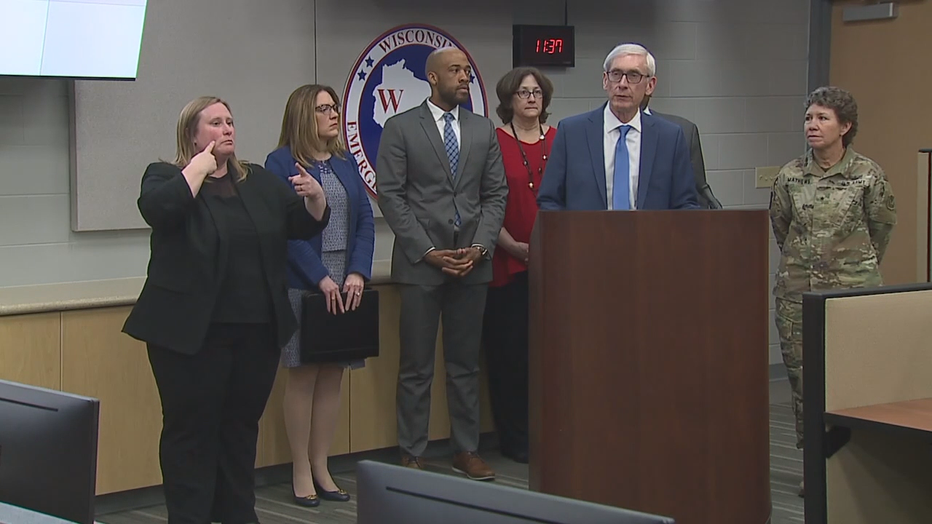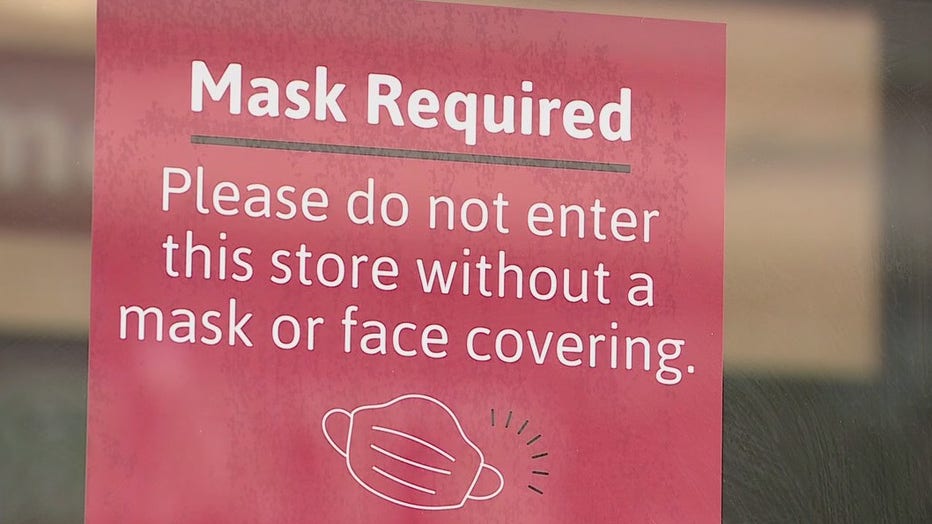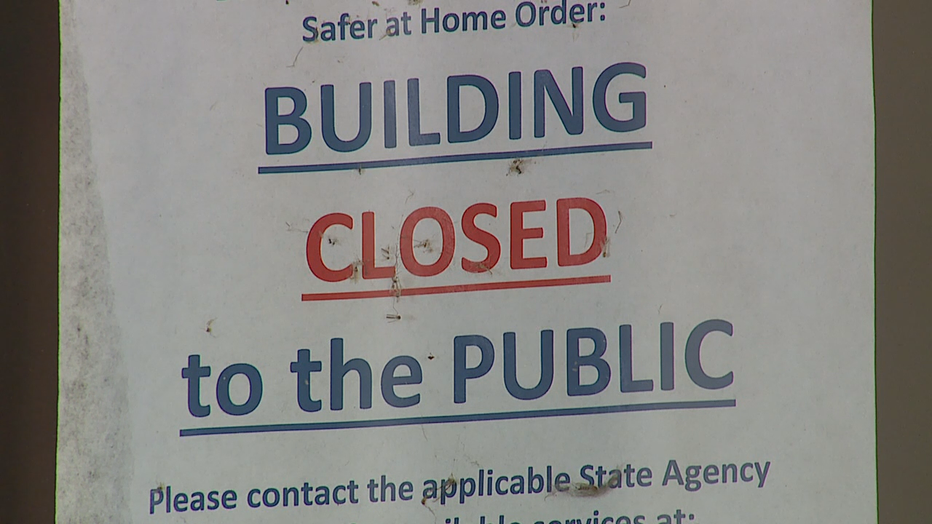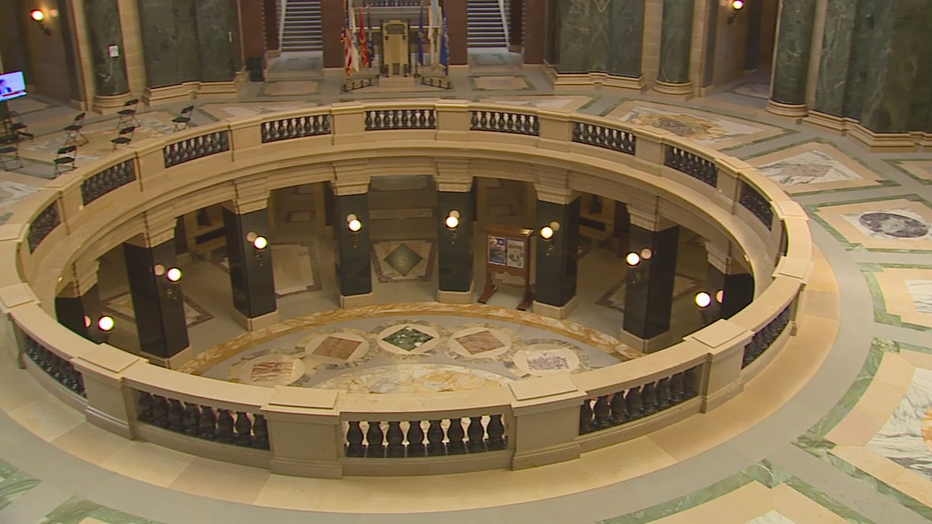Pandemic politics define year of COVID-19 in Wisconsin

Pandemic politics define year of COVID-19 in Wisconsin
Wisconsin leaders scrambled to respond to the then-emerging COVID-19 pandemic one year ago on March 12, 2020.
MILWAUKEE - Wisconsin leaders scrambled to respond to the then-emerging COVID-19 pandemic one year ago on March 12, 2020.
Gov. Tony Evers declared a public health emergency that day. In less than a week, the state took drastic action that changed everyone's lives.
One day after that emergency was declared, Wisconsin announced that all schools -- public and private -- would close. Then, on St. Patrick's Day, the state closed dine-in eating and bars. Come March 25, the state shutdown went statewide with the "Safer at Home" order.
It came in stark contrast to February 2020, when the big debate was whether bars could stay open until 4 a.m. during the Democratic National Convention, scheduled to take place in Milwaukee that summer.

Gov. Tony Evers declares a public health emergency in March 2020, the onset of the COVID-19 pandemic.
Gov. Evers activated the Wisconsin National Guard on the first day of the public health emergency, and the state recommended canceling events of more than 250 people.
"Wisconsin is going to have to have a different look to it in the future," Gov. Evers said at the time.
And look how different it's become.

The governor opened the state Emergency Operations Center, which is now in its longest activation in state history. March 12 also saw the doors shut to the public at the U.S. Capitol and a halt to tours at the Wisconsin Capitol. The state Capitol closed altogether on March 25.
"At that point, really nobody knew what was going on, so I think the plan of action, the course of action we took, was probably the appropriate course," said State Sen. Chris Kapenga (R- Delafield.)
The doors of the Capitol remain locked, with public notices placed outside. However, there is one exemption: When the Legislature is meeting or having a hearing, one set of doors is open.

Wisconsin lawmakers returned in April 2020 for an extraordinary session and navigated uncharted waters of technology.
During unprecedented times, business in Madison has gotten back to a little bit more normal. In January 2021, Republicans passed a joint resolution asking the administration to keep the Capitol open.
"It’s the people’s house and we want to leave the decision on if they’d like to come in to the individual person. Whatever their specific situation is," said Kapenga. "If they want to be part of the legislative process, as the voice of the people, we want to make sure they have access to it."

Wisconsin Capitol rotunda in Madison
Where now Democrats criticize Republican leaders for not requiring masks, the governor's mask mandate exempts space run by the legislature.
"There are countless people that are working in this building that have to be here, and the behavior of the people who are coming into the building without masks, is putting their lives in jeopardy and that is not OK," said State Sen. Melissa Agard (D-Madison).
After a year of emergency, Wisconsin looks for happier days.
FREE DOWNLOAD: Get breaking news alerts in the FOX6 News app for iOS or Android.
Wisconsin's governors can issue a 60-day emergency. Gov. Evers has issued multiple new emergencies during the pandemic, including one right after the Legislature voted to revoke one in February.
The latest emergency declaration is the basis of Wisconsin's mask mandate. In November, the Wisconsin Supreme Couty heard a case challenging those and subsequent emergencies and mask mandates, but the justices have not yet ruled.
In May, the Wisconsin Supreme Court struck down the state's Safer at Home shutdown.
Featured
FEMA to aid in Milwaukee COVID-19 vaccinations beginning March 15
FEMA personnel and resources will be used at the Wisconsin Center vaccination clinic, allowing local resources to be freed up for deployment at other sites in the community.
Featured
Gov. Evers: Everyone in Wisconsin will be vaccine eligible May 1
All adults in Wisconsin will be eligible for the coronavirus vaccine on May 1, Gov. Tony Evers announced Friday.
Featured
Year after start of pandemic, signs of normalcy in Milwaukee County
Exactly one year after the World Health Organization (WHO) declared a pandemic due to COVID-19, Milwaukee officials reflected on the past year -- and what lies ahead.




